We’re back with a new episode of our “Scentsational Minds” series! If you missed the previous one, you can catch up here. In this seventh episode, we’re excited to introduce Georges Chlouk, a perfume alchemist whose work explores the intersection of scent, culture, and nature.
“Scentsational Minds” is a series of interviews and reports showcasing innovative and experimental approaches to perfumery, featuring the views of professionals who are breaking new ground in the industry.
#7 Preserving Lebanon’s fragrant heritage with Georges Chlouk
Georges Chlouk is a perfume alchemist based in Beirut, Lebanon, born and raised in Saudi Arabia. Specialising in the extraction of rare and delicate flowers, he employs ancient techniques like enfleurage to capture scents that conventional methods cannot. Inspired by his childhood in Riyadh, he merges an Arabian sensibility with Mediterranean botanicals, offering a unique perspective on Arab perfumery.
A self-taught artisan, Georges describes his approach as Intuitive Alchemy, believing that creativity is innate and that passion is the driving force behind bringing ideas to life. In addition to his work in perfumery, he is a tour guide and facilitator, celebrating the cultural richness of both Lebanon and Saudi Arabia—two places that have deeply shaped his identity. As a DJ, he explores the intersection of music, culture, and scent, curating immersive experiences that engage the senses in unexpected ways.
What is the ultimate goal of your exploration in the world of scent? Do you see yourself as primarily a perfumer, a storyteller, or an innovator reshaping the way we experience natural materials?
All of the above! I have always been a storyteller, whether through my neighbourhood tours, DJ-ing, music production, or scent. Evolving into a perfumer is the logical step forward; meanwhile, I am in a magical place at the moment, extracting scent from my flowers and plants. I have connected with some interesting perfumers around the world who have shown interest in using my materials in their creations. This has been a gratifying experience, as Lebanon is a blank canvas with endless tools to create beautiful olfactory art. When I first began, I didn't know where this would take me, but I was head over heels in a relentless pursuit of capturing and preserving the scents of nature around me. I now rely on this instinctive drive to take me to where I need to be—no questions asked, just keep moving.
Your work has an alchemical quality, reflected beautifully in your account name, Intuitive Alchemy. How do you view your role in transforming nature into scent? Does this process reveal anything unexpected about the natural world?
I see myself as a modern-day alchemist's apprentice, eternally being tutored by the flowers themselves. I am in constant awe of their beauty, season after season. The more I know them, the more my respect for them grows. All the "effort" I put into caring for the plants doesn't feel like a job; it's more of an obligation, a silent dialogue between me and nature that is fulfilling, healing, and educational. I grew up in Riyadh, Saudi Arabia, a vast and arid desert city, and would rarely visit Lebanon due to the civil war at the time. But when I did go to Beirut in pockets of peace, I would stop and stare at the inula viscosa growing by the side of the road, take deep breaths savouring the jasmine from every balcony, and pick up every fallen plumeria flower from the pavement, no matter how damaged it was. My family would always have to drag me away from a patch of greenery, mundane to others but magical to me. Our geography allows for plants to grow all year long, from coast to mountains and in the valleys among the peaks. The saying that money doesn't grow on trees is absolutely false in Lebanon. Now that I live here, I feel like I am making up for lost time by immersing myself more and more in its nature. Nature is generous; it is there to aid us in the human experience for the very short time we are on this planet. It is essential to take only what you need, as there is abundance for everyone and everything.
Your collaboration with Mabelle O'Rama and the extraction of sumac for her fragrance Phoenix Flame was a fascinating project. What did this experience teach you about collaboration and the reinterpretation of local materials in perfumery?
It wasn't the ingredient that surprised me. It was finding a person like Mabelle who shares the love that I have for Lebanon and its aromas, and who understands how precious our natural heritage is. I'm a solitary person by nature, and my obsession with fragrant herbs and flowers makes it even lonelier, so the surprise was connecting with a like-minded person to show the world what we have in our backyard. I have raided all my aunts' and uncles' Mouneh rooms and tinctured everything I could find, including sumac, so Mabelle's proposition validated my madness with her fragrance, Phoenix Flame. Mouneh is the art of preserving seasonal foods for use off-season; most homes here have either a large closet in their kitchen or a full-on room in the house dedicated to it. My own perspective has long embraced the idea of using unconventional perfume ingredients, but what fascinates me is seeing how others react. Usually, aromatic ingredients we use in food may be seen as a little strange in perfume. For example, orange blossom is used heavily in desserts, and more often than not, Grandma would use it as a remedy when children were sick, so disconnecting scents from childhood memories and connecting them to glamorous fragrances is no easy task. What is overlooked here is exoticised elsewhere, and eventually, it will come full circle back to its starting point. There is a beautiful saying in Lebanon that "the nearby shrine doesn't heal," meaning sometimes someone or something has to travel far and wide to be seen for what it truly is. If you want to know the shocked look I get when I use common food materials in perfume, just offer a Lebanese person chocolate hummus and watch their face!
By openly sharing your learning process on Instagram, you've made visible what is often a hidden craft. Has this transparency reshaped your own understanding of creativity and the role of tradition in scent-making?
I simply listened to my intuitive drive to create. I already spend a lot of my time behind closed doors, so sharing this with the (virtual) world was a way for me to communicate. Transparency is important to me; this is why I document every batch of every season in my Instagram highlights. When a perfumer purchases material from me, or when a client asks me to make a perfume, they can go back to my Instagram and trace the story back to its origin. Enfleurage and tincturing are tedious processes; not everyone has the patience and hyperfixation to soldier on with this art. Everything in life is there for the taking, but the real question is, can you commit responsibly to this ancient craft? Enfleurage and perfumery have been around for thousands of years; there is no room for gatekeeping. While transparency is my personal approach, I recognise that this is not always the norm in the perfume industry, where techniques are often closely guarded.
Your work focuses on plant extraction, but it also seems to carry a larger message. What do you hope to inspire in the olfactory world—crafting fragrances, sparking curiosity, or challenging conventional perceptions of natural materials?
Yes, yes, and yes. This passion for extraction is part of the search for my own identity. Having been born and raised outside Lebanon, my dream was to return and find the missing puzzle pieces of myself, sharing them with the world along the way. Sometimes impostor syndrome is an obstacle to fragrance creation, but I remedy that by tunnel-visioning on my work and intentionally not immersing myself in anyone else's work (at least for the moment) so that I am able to find my personal style. Inspiring curiosity is something I live for! The people around me know me for finding the sexy in the unconventional... yes, I get endless eye-rolls, but in the end, they find it endearing that someone could look at a leaf and be so excited about it and actually transmit that excitement. When it comes to redefinition, I insist on making people aware of their sense of smell, understanding it, and using it! I also approach scent with neutrality. Our reactions to scent are shaped by personal and cultural conditioning. Rather than simply "not liking" something, I encourage people to ask: Does it remind us of a good or bad memory? Can we reinterpret it? Should we? If I am walking with someone down the street and a gardenia bush is in sight, I oblige them to take a moment to stand next to it, be aware of the scent, take deep breaths, and just silently appreciate all the big little gifts we have. Having said all this, the future for me is fragrance creation, educational workshops, scent tourism, and sustainably expanding extraction to place Lebanon once again on the olfactory map of the world.
Georges’ work was a beautiful discovery for us and is a reminder of how much there is to discover when we pay closer attention to the natural world around us.
If you’d like to follow his journey, check out his Instagram, where he shares more about his process and creations. And of course, stay connected with us—follow, subscribe, and share if you enjoyed this episode!
Thanks for reading, and see you next time!
Costanza Sofia
Nunotes’ Founder





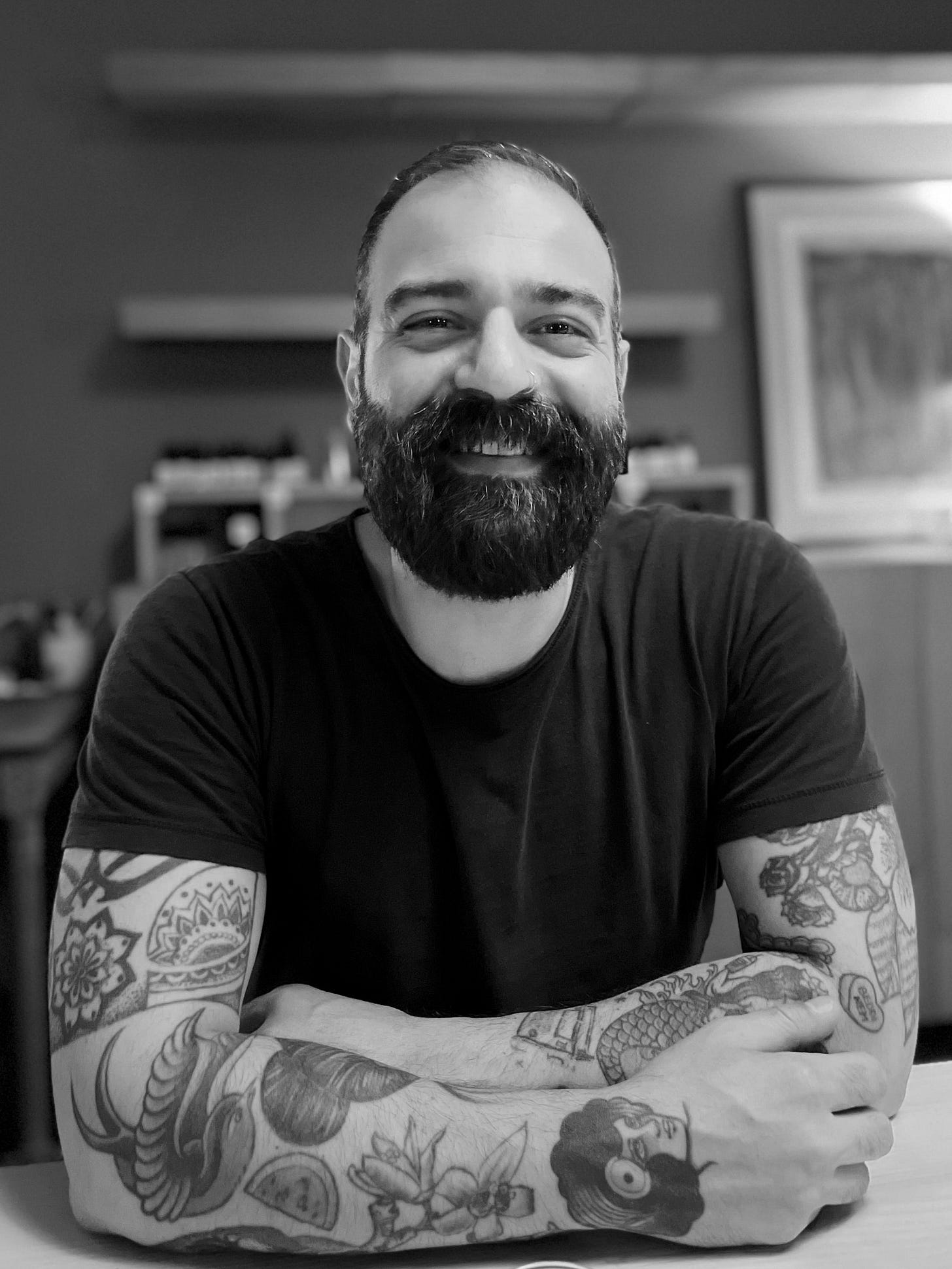
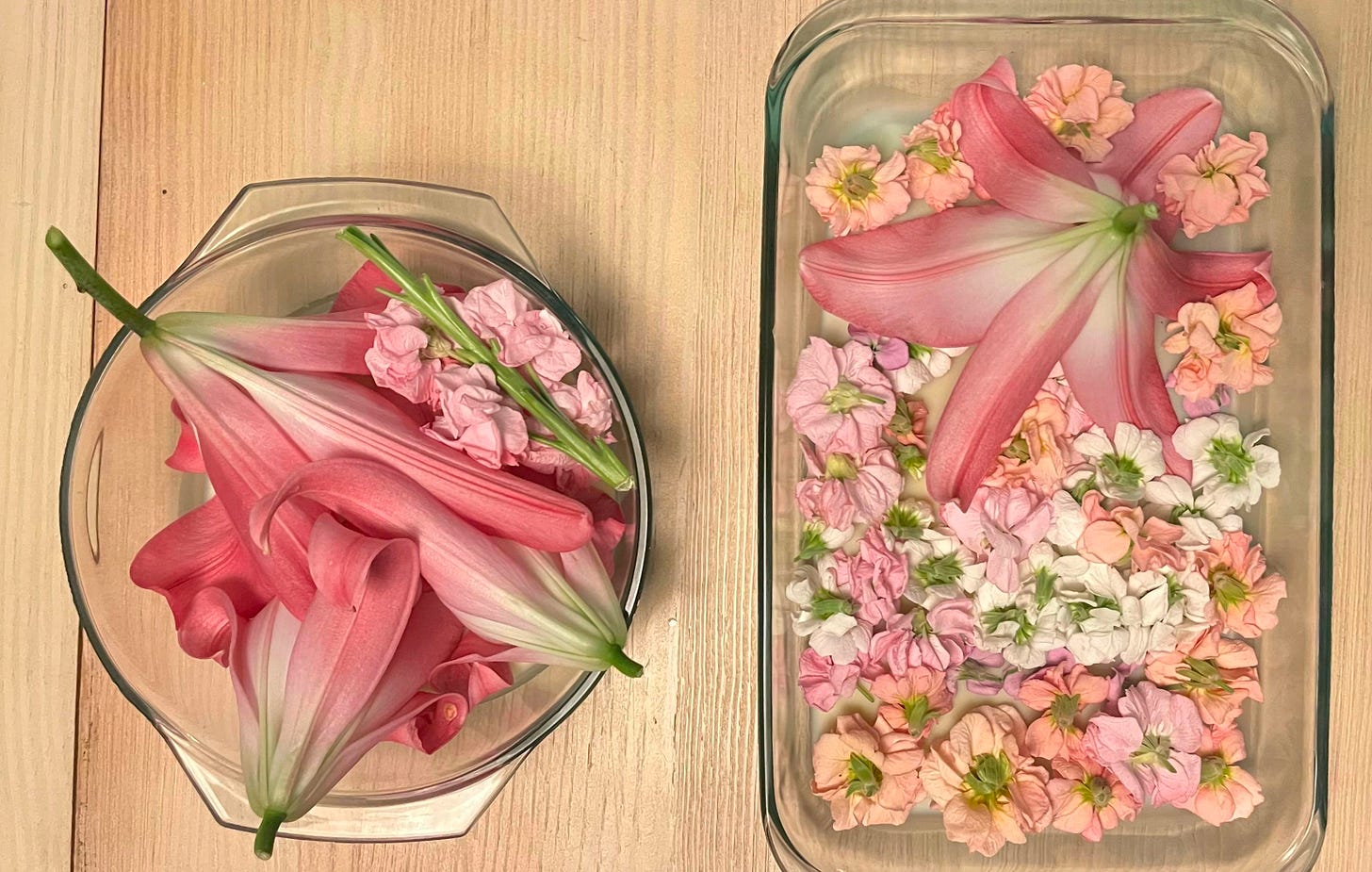
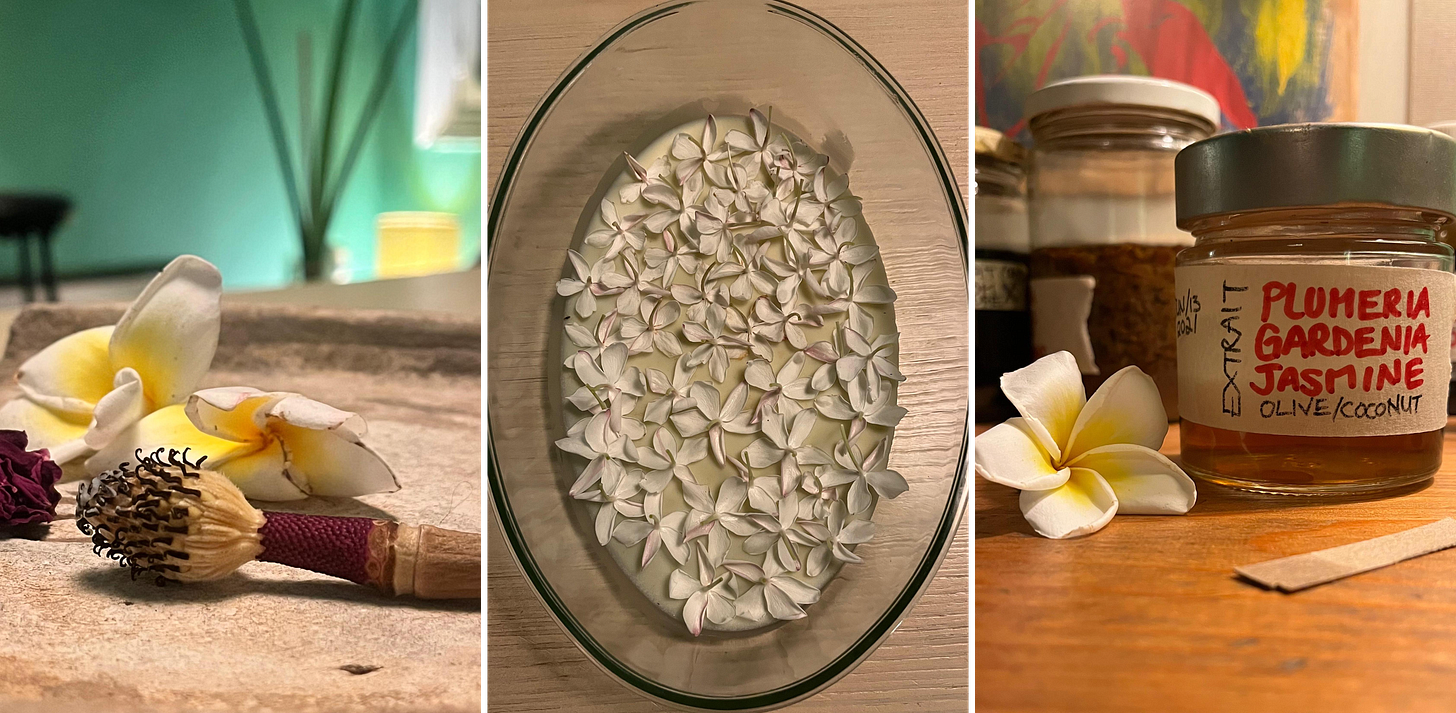
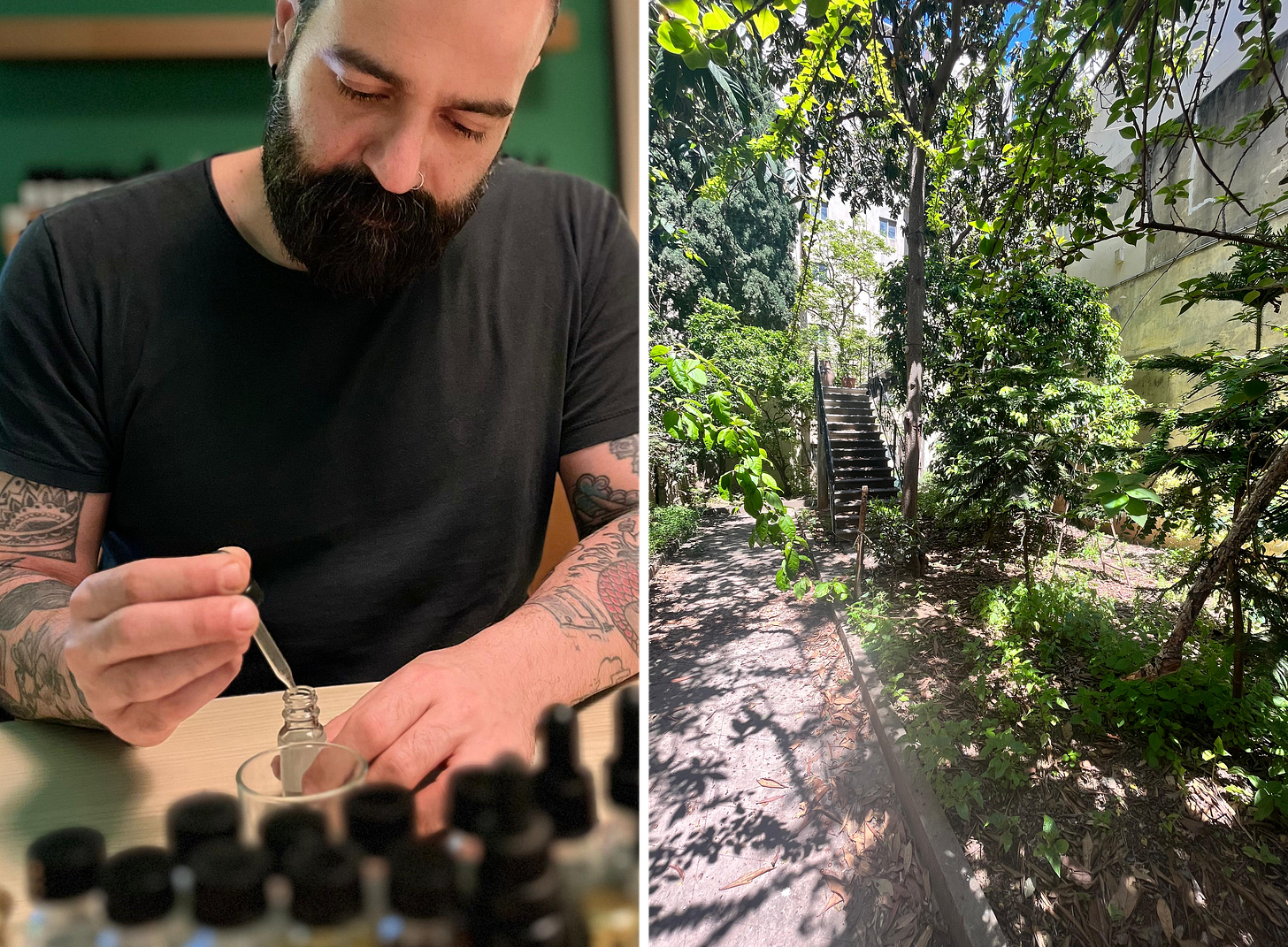
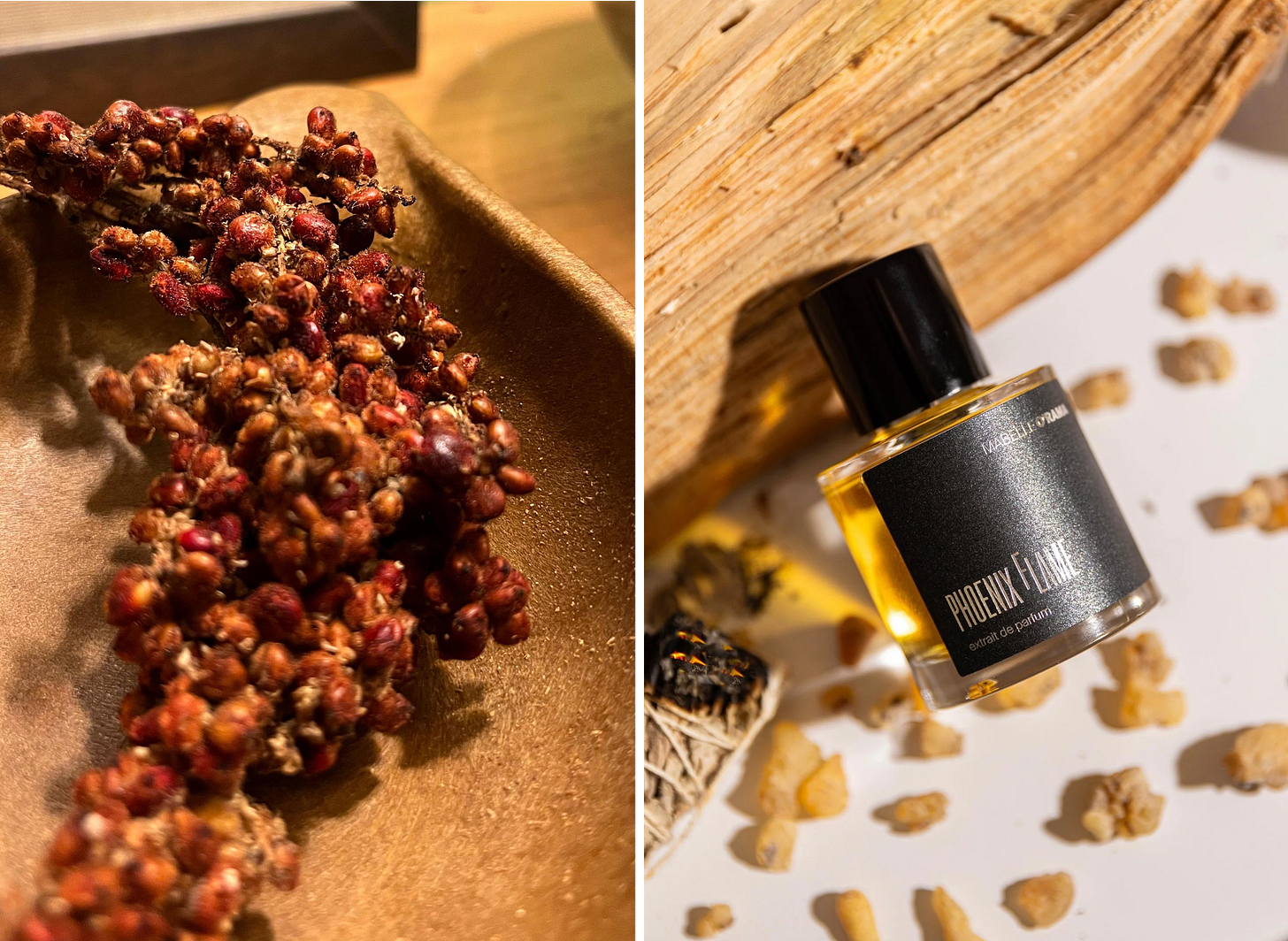
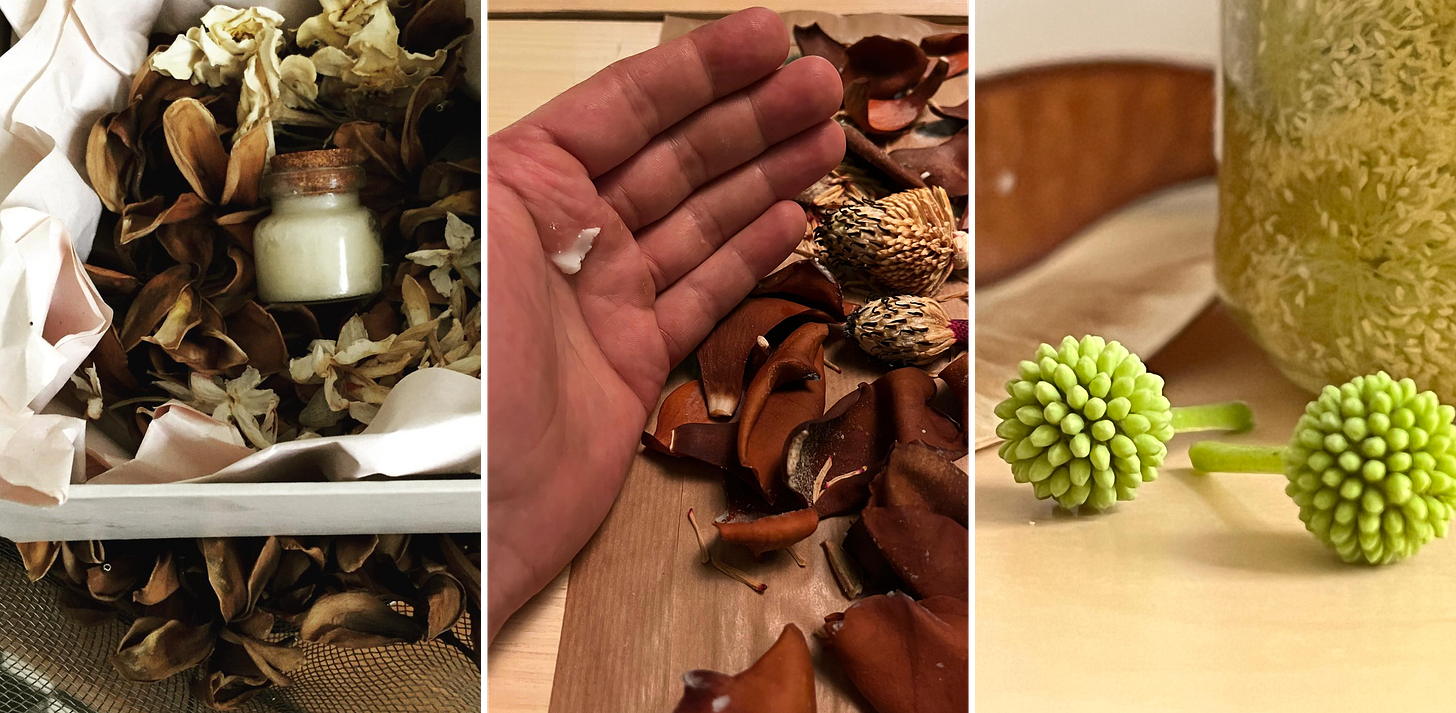
how cool!!! can‘t wait to read! he is such an inspiring perfumer 😍